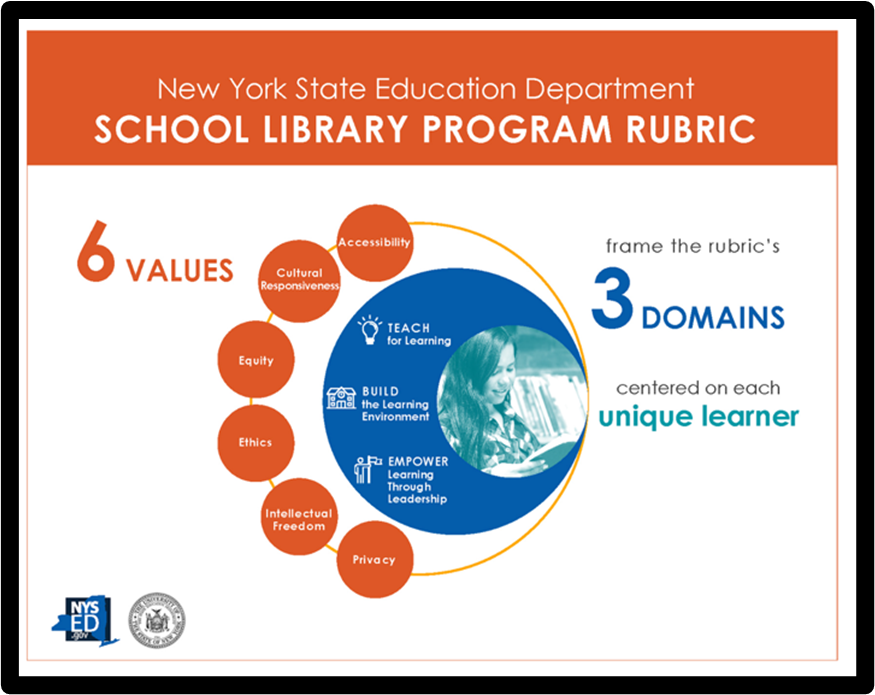Submission Date:
Question:
I am a school librarian represented by the teachers’ union. What should my union leaders know to advocate for me?
Answer:
It is hard to be a union rep. Teachers and other educators have a wide variety of regulations they must abide by. What is important to remember is that within those parameters, school libraries have even more requirements and limits.
Here are the important things for an attorney or union rep negotiating or advocating for a school librarian to know:
Public school libraries are required by law.[1]
Public school librarians (or “media specialists”) are required by law.[2]
Public school librarians must meet specific regulatory criteria.[3]
Public school library materials are NOT curricular materials.[4]
Librarianship is constantly evolving! School librarians should be provided with adequate annual professional development training.
Public school librarians have an obligation to uphold the values in the New York State Education Department “School Library Program Rubric” below.

“Intellectual freedom” includes the right of students to have access to school library materials and services.
A student’s library records are confidential under FERPA as well as under state law.[5]
If a district uses student device-monitoring software, the software must be able to omit consideration of library materials from its monitoring.
A librarian is ethically obligated to maintain the confidentiality of a student’s library records.
Every school district should have a robust and well-thought-out “school library materials policy” governing selection, procurement, cataloging, lending, concerns, re-evaluation, and removal of library materials.[6]
A district’s policies and procedures should honor the legal obligations, professionalism, and qualifications of your school librarians and media specialists.
A school librarian with ethical and legal compliance concerns should have, if at all possible, access to their school district’s lawyer, so they can confidentially share those concerns and work to resolve them.
Ad hoc decisions about curricular and library materials imposed without consulting policy can lead to legal claims, creating unnecessary media attention, community tension, and expense for school districts. For a good primer on this, review the NYSED Commissioner Decision 18,402.[7]
School librarians must not be required to work under these conditions:
- Library staff are directed to keep “controversial” books in the collection but move them off the shelves and into a storeroom;
- Books in the collection are stigmatized by making them available “by request only;”
- Parents and guardians with concerns are told that library material will be removed and are not referred to the relevant policy for lodging a complaint or requesting that material be re-evaluated;
- Staff are instructed that certain books may only be checked out after obtaining parent/guardian consent;
- Lists of books checked out by students are shared in excess of what professional ethics, FERPA and CPLR 4509 (regarding privacy) allow;
- Staff are directed to avoid selecting a certain “type” of material, even if that material is otherwise appropriate per the district's materials policy; or
- Library collection content is prohibited based on political or identity-based factors.
It is good for the district, its employees, and their union to build an administrative and educational team that is READY to respond to concerns about library materials.
Librarians should be assured of protection from retaliation for performing their jobs as required by law and policy and should be supported by their union through any grievance or disciplinary proceeding based on same.
Just a short list!
[1] 8 NYCRR 91.1
[2] 8 NYCRR 90.18 and 91.1
[3] See https://www.nysed.gov/college-university-evaluation/general-and-program-specific-requirements-library-media-specialist
[4] Education Law Section 712
[5] Civil Practice Law and Rules Section 4509
Tag:
School Libraries, NYS Education Law, FERPA, CPLR 4509, Unions, Intellectual Freedom
